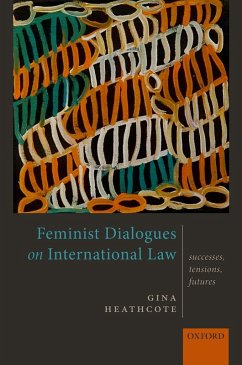In the past decade, a sense of feminist 'success' has developed within the United Nations and international law, recognized in the Security Council resolution 1325 on women, peace and security, the increased jurisprudence on gender based crimes in armed conflict from the ICTR/Y and the ICC, the creation of UN Women, and Security Council sanctions against perpetrators of sexual violence in armed conflict. Contributing to the development of feminist and gender scholarship on international law, Gina Heathcote provides a feminist analysis of the central pillars of international law, noting the advances and limitations of feminist approaches. Through incorporating into mainstream international legal studies specific critical and feminist narratives, this book considers the manner in which feminist thinking has changed international law, and the manner in which international law has remained impervious to key feminist dialogues. It argues for a return to structural bias feminism that engages the foundations of international law and uses gender as a method for challenging post-millennium narratives on fragmentation, the role of international institutions, the nature of legal authority, sovereignty, and the role of international legal experts.
Dieser Download kann aus rechtlichen Gründen nur mit Rechnungsadresse in A, B, BG, CY, CZ, D, DK, EW, E, FIN, F, GR, HR, H, IRL, I, LT, L, LR, M, NL, PL, P, R, S, SLO, SK ausgeliefert werden.


